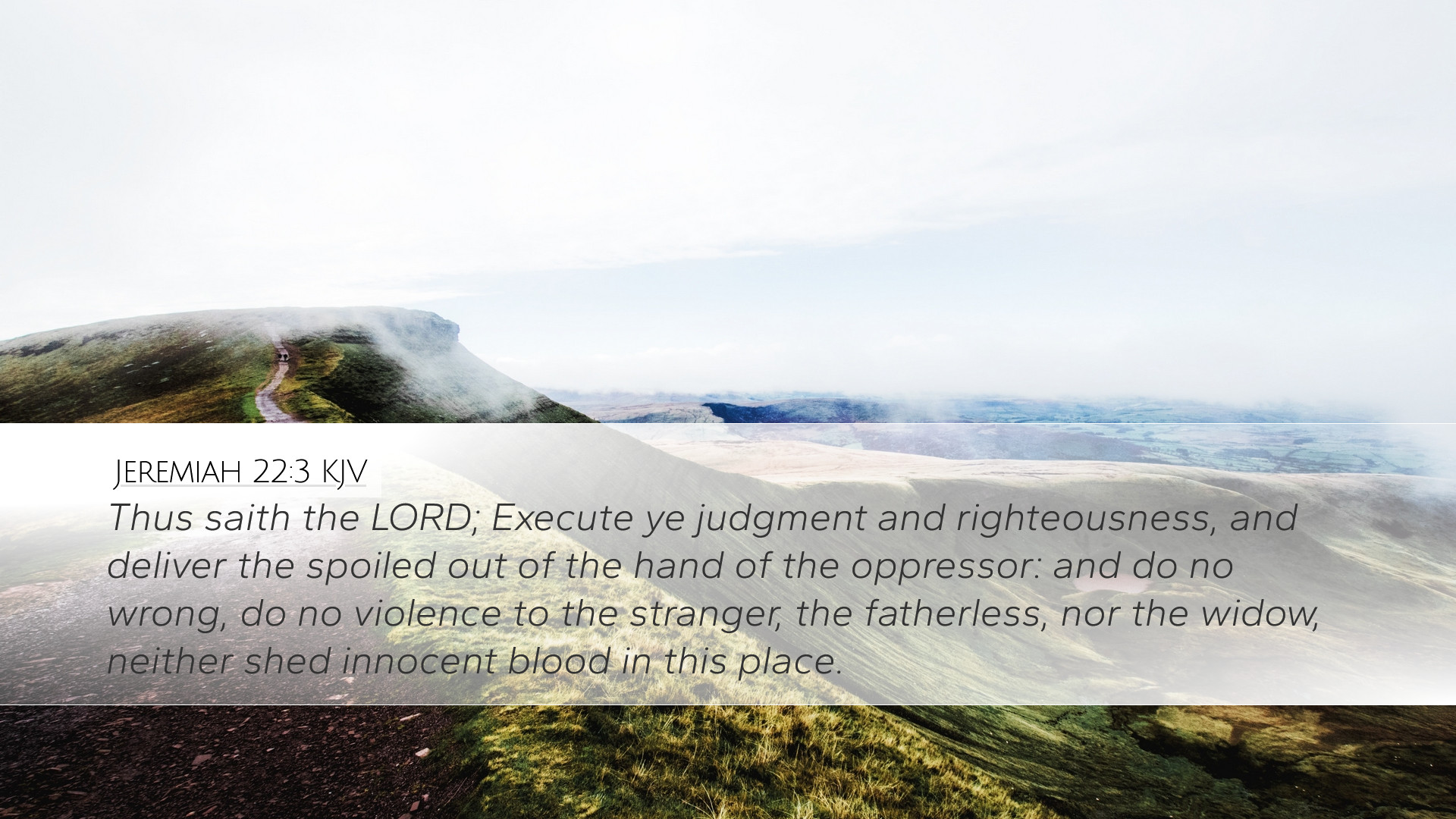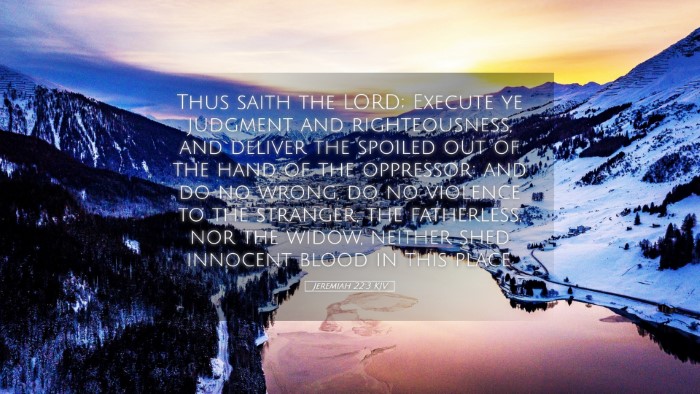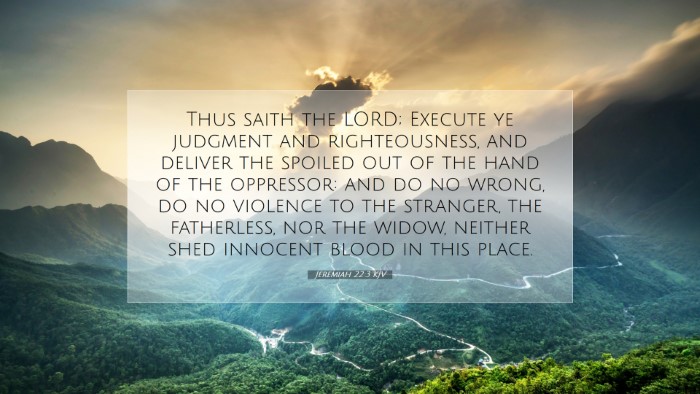Commentary on Jeremiah 22:3
Jeremiah 22:3 states: "Thus says the LORD: Do justice and righteousness, and deliver from the hand of the oppressor him who has been robbed. And do no wrong or violence to the resident alien, the fatherless, and the widow, nor shed innocent blood in this place."
This verse encapsulates the ethical and moral imperatives that God sets forth for His people, particularly in regard to justice and righteousness in governance. In examining this verse, we will draw insights from respected public domain commentaries, particularly the works of Matthew Henry, Albert Barnes, and Adam Clarke.
Contextual Background
Before expounding on the verse, it is essential to understand the historical and contextual backdrop of Jerusalem during Jeremiah’s prophecy. The nation of Judah was grappling with corruption, idolatry, and social injustice under King Jehoiakim's reign. Jeremiah's prophetic messages were directed toward urging reform and pleading for the people to return to God’s covenant standards.
Exegesis of Jeremiah 22:3
This verse can be broken down into several key themes which highlight God’s expectations from His people:
-
Call to Justice:
Henry emphasizes that the divine command begins with a strong call to justice and righteousness. The term "do justice" indicates an action-oriented approach, implying that the rulers are to actively engage in promoting fairness and equity in their governance. Barnes reiterates this sentiment, noting that such justice must be consistent and pervasive throughout all levels of society.
-
Deliverance from Oppression:
God’s call to "deliver from the hand of the oppressor" underscores His concern for the vulnerable. Both Clarke and Henry point out that this reflects God's heart towards the oppressed and marginalized, demanding that leaders act to liberate those wronged by injustice.
-
Protection of Vulnerable Groups:
The mention of "the resident alien, the fatherless, and the widow" reveals the people whom God especially notices in society. These groups are often at a disadvantage and in need of protection and advocacy. Clarke notes that the neglect or mistreatment of these individuals reflects broader societal failures, thus calling for specific attention from rulers and those in authority.
-
Rejection of Violence:
God’s prohibition against violence highlights the sacredness of life. "Do no wrong or violence" signifies that leaders must eschew corrupt practices and refrain from harm. Henry draws attention to the moral imperative of leaders to model godliness and peace, which contributes to a society that reflects divine principles.
Theological Implications
This verse is not merely a historical decree; it encapsulates enduring theological principles that resonate even today:
-
The Nature of God’s Justice:
The characteristics of justice and righteousness are inherently linked to the nature of God. As highlighted by Barnes, these attributes reveal God’s desire for His people to reflect His image in the world by engaging actively in justice, thereby fulfilling His commandments.
-
Calling of God’s People:
Pastors and theologians alike can draw from the implication that believers are called to be advocates for justice. This is a biblical mandate that reaches beyond cultural and temporal boundaries, as articulated by Henry, who encourages Christians to engage meaningfully with social issues.
-
Corporate Responsibility:
Clarke suggests that the corporate nature of this command calls not only individuals but also systems and institutions to assess their moral standing. The collective failure to uphold justice leads to societal decay, reinforcing the idea that God’s people bear a corporate responsibility in pursuit of justice.
Practical Applications
In light of these insights, contemporary readers and leaders can embrace several applications:
-
Advocacy and Action:
Believers should actively seek opportunities to advocate for the oppressed and marginalized within their communities. This aligns with God's eternal concern for justice.
-
Moral Integrity in Leadership:
Leaders, both in church and state, are called to model integrity, especially when making decisions that affect the vulnerable. The ethical standards set forth in this verse should guide their conduct.
-
Community Engagement:
The church's engagement with societal issues should reflect the heart of God as revealed in this scripture, promoting comprehensive justice and demonstrating God's love through tangible actions.
Conclusion
Jeremiah 22:3 serves as a powerful reminder of God's moral expectations for His people, urging them to pursue justice, protect the vulnerable, and reject violence. The insights from Matthew Henry, Albert Barnes, and Adam Clarke reinforce the significance of these divine principles and challenge us to engage with our world meaningfully. As we meditate on this verse, may we earnestly seek to embody its truths in our lives, ministries, and communities, fully reflecting the character of our just and righteous God.


